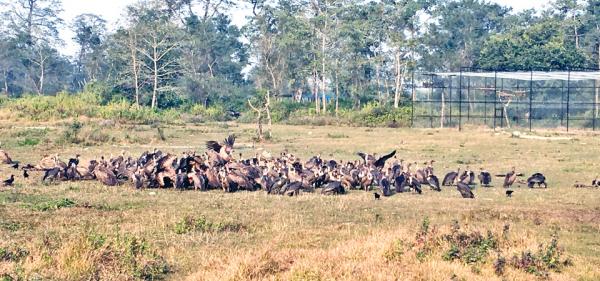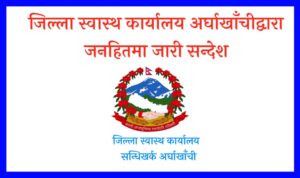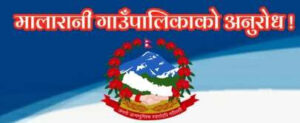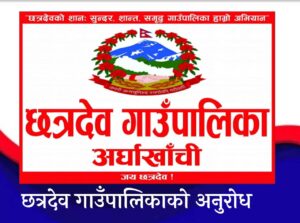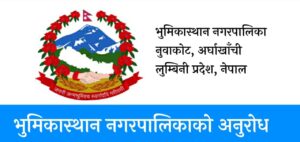28 Dec, 2021
By Shanta Adhikari Rising Nepal
Chitwan, Dec. 28: DB Chaudhary of Kawasoti Municipality-13 Laukhani of East Nawalparasi was the only man in the village to bring the concept of Jatayu Restaurant to conserve vultures. It has been 15 years since and it has been a complete success now.
In those days, people had a different view on vulture conservation. They had various questions like, why protect the dirty birds? What do they give us? It was very difficult to explain. And there were very few who joined the conservation campaign.
It was hard not only to rally the support and assistance from the village level but also the government. But much has changes since 2006 when the concept was introduced. Recalling the old memories, Chaudhary says, “Even a river changes course in 12 years and the same has happened to me here.”
He said, “The firm determination of achieving success is requisite to move forward. Those who were not positive about conservation in yester years are now becoming our conservation companions.” The establishment of Jatayu Restaurant has become a success in vulture conservation as well as in income generation.
While launching a campaign for vulture conservation one and a half decades ago, there were about 17 vulture nests in the area, which have now reached 64. Up to 72 vultures of seven species used to come to the restaurant during those days but now the number has increased to 334 of eight species.
The vulture restaurant, which was in a position to search for the carcasses of the dead cattle at the beginning, has recently brought into operation the cowshed which shelters abandoned loose cattle. They become the food of vultures when they die.
Conservation of the vulture, which started from a small scale, is now preparing to expand. Some 50 hectares of land in the intermediate community forest area have been allocated by the Chitwan National Park Office for vulture conservation.
Gaushala is under the Vulture Conservation Centre (Jatayu Restaurant) and aims to produce organic manure from cow dung in the coming days. The vultures reared at Kasara Breeding Centre in the restaurant area are being taken to their natural habitat.
According to conservationist Chaudhary, 10 pairs of vultures from the breeding centre have been kept in a temporary cage constructed in the restaurant area. Three of the pairs breeding their babies in the same temporary cage. When the vultures are released, a satellite tag is attached on their wings.
He informed that the vultures were found reaching the Pakistan border via India. He said that during the monitoring, the vultures were found reaching as far as 100 kilometres away in a day in search of food.
Of the nine species of vulture found in Nepal, Bearded Vulture, Slender-billed Vulture, Red-headed Vulture and Indian Vulture are listed as endangered species. Others — Egyptian Vulture, Bearded Vulture, White-rumped Vulture, Slender-billed Vulture, Himalayan Griffon, Griffon Vulture, Cinereous Vulture and Red-headed Vultures — are found in Nepal.
In 2006, only 1,200 pairs of vultures were found in Nepal. Currently, that number has increased to an estimated 12,000.
The use of diclofenac in Nepal had led to the extinction of vultures. The use of this veterinary medicine is now completely banned in Nepal and India.
